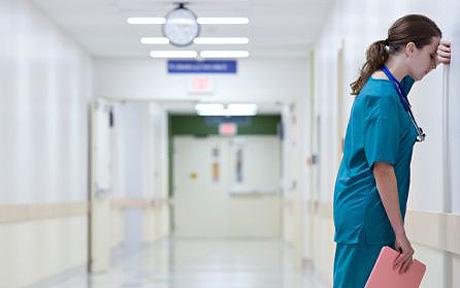THE Spanish government’s austerity reforms could lead to an increase in infectious diseases, significantly damaging the health of the population.
This is according to recent research published in the British Medical Journal, which warned that if the current trend does not change there is a risk Spain will see spiralling health problems.
Researchers fear national budget cuts may result in the effective dismantling of large parts of the country’s healthcare system. This could lead to the rise of infectious diseases such as tuberculosis and HIV, with the country struggling to deal with increased demand on already stretched resources
Part of the analysis involved interviews with 34 doctors and nurses across Catalonia. Many reported feeling ‘shocked’, ‘numbed’ and ‘disillusioned’ about the cuts and expressed fears that ‘the cuts are going to kill people’.
Lead author of the study Dr Helena Legido-Quigley said: “We are seeing detrimental effects on the health of the Spanish people and, if no corrective measures are implemented, this could worsen with the risk of increases in HIV and tuberculosis – as we have seen in Greece where healthcare services have had severe cuts – as well as the risk of a rise in drug resistance and spread of disease.”
The research noted that cuts to healthcare and social services of almost 14% at the national level and of 10% at the regional level in 2012 coincided with an increase in demand for care. This was especially true for the elderly, the disabled and the mentally ill.
It also highlighted the fact that Spain already had one of the lowest public expenditures on healthcare relative to GDP in the European Union, and pointed out that planned further cuts would put vulnerable people at even greater risk.
Other planned healthcare changes include excluding unofficial immigrants from accessing free health services and increasing payments by patients for extra treatments such as drugs, prosthetics and some ambulance trips.
“For five years, policies to address the financial crisis have focused almost entirely on economic indicators,” said Professor Martin McKee, co-author of the report. “Our paper sheds light on the burden of human suffering that has followed from these policies.”











Spain must stop building stations with no passengers, airports with no planes and motorways/toll roads with no cars, and start investing in more important things. yet all we hear is how Spain needs more coastal houses, hotel complexes and marinas. Does anyone have a brain in the government?
This was to be expected. Public heath is too important to be left in the hands of bean-counters who appear to know the price of everything and the value of nothing. Those used to live in the UK post-1987 will be familiar with this kind of effect.
Public spending in other area is complex.
Yes, there were airports built with public money, most notably the one built just outside Ciudad Real, who have since fallen by the wayside. However, it is highly unlikely that we will see that happen again in the foreseeable future. Money is simply not available.
Public funding of toll roads in Spain is a complex issue but, basically, the finance is put up by the firms that take the toll income. So essentially there is no public funding of toll roads.
Other highway building capital funding has been shelved because the government says the money is just not available.(The northern access to Málaga is just one example.) Road maintenance is largely the only thing that get money pent on.
House and marina development is down to supply and demand. If a developer thinks there is a market, they will build. If not,, there will be no spending. The government to date has put no money in the hand of building developers and not has not made mortgage borrowing any easier.
The picture is pretty grim if we are to believe the government and the EU.